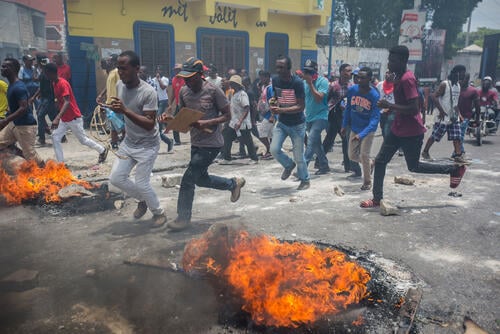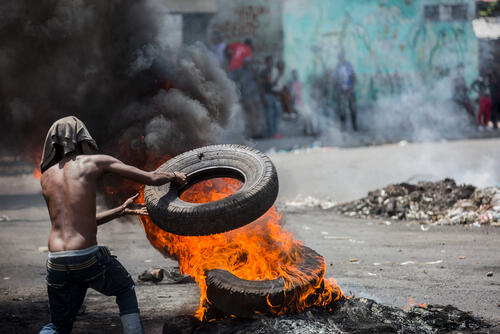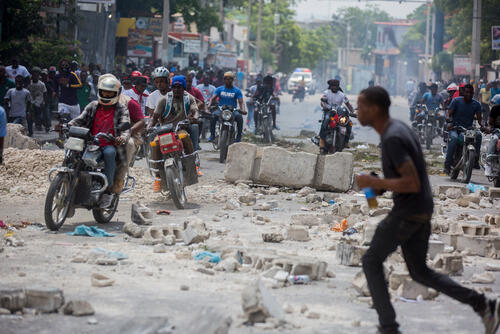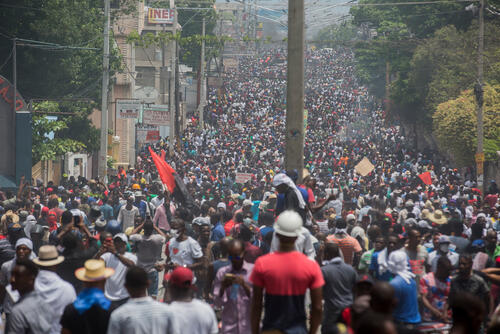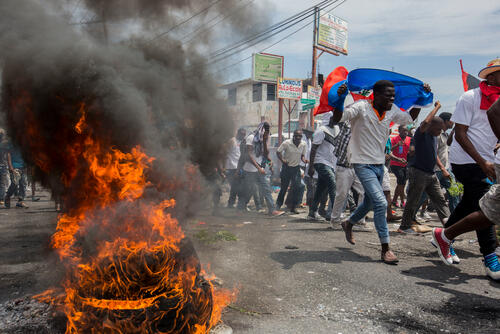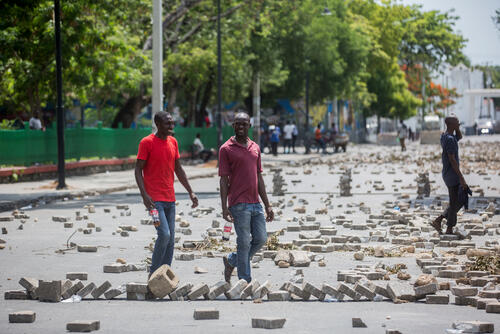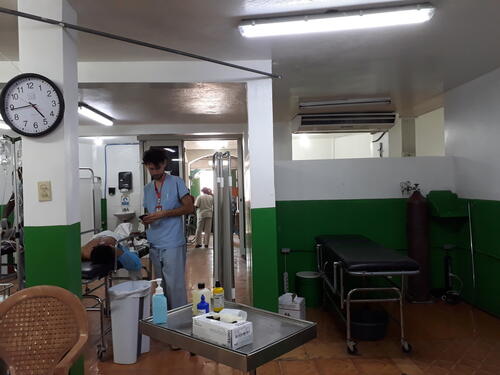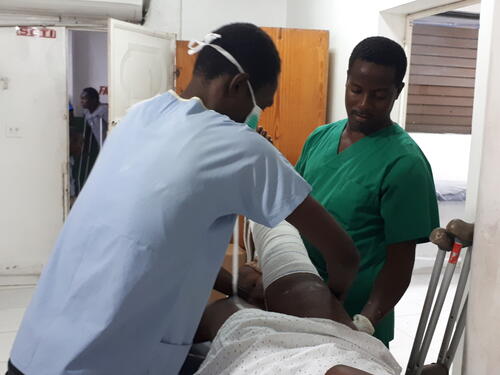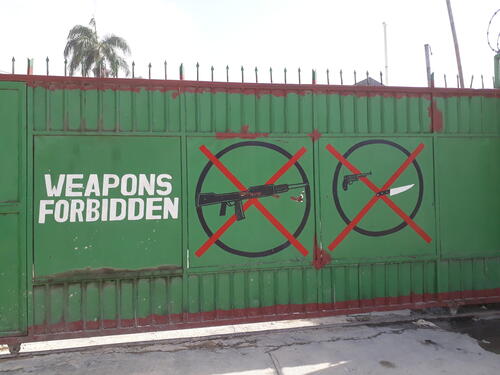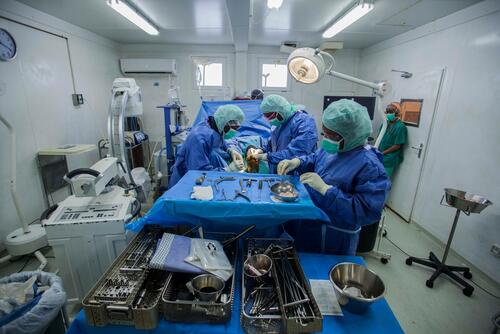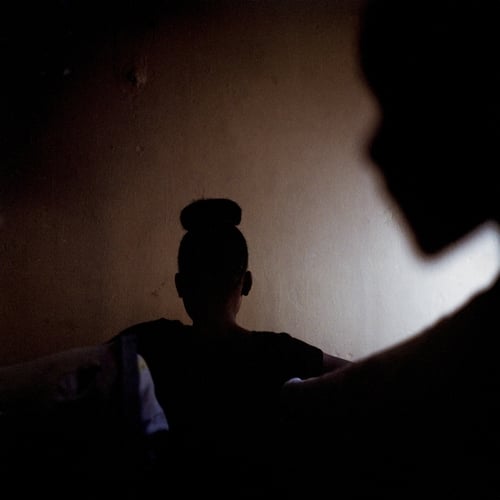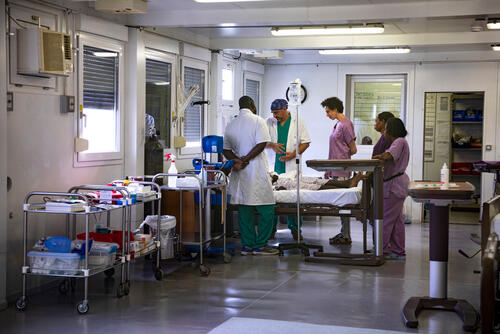Far from the cameras, Haiti is faced with a major crisis as political and socioeconomic factors bring on a massive upsurge in violence.
For months now, Haitians have seen a steady decline in their purchasing power as the national currency has devalued and fuel prices have increased, against a backdrop of seemingly endless political stalemates and scandals.
A surge in violence
The past year has seen a rise in large-scale and sometimes violent demonstrations in the country, coupled with a sharp rise in gun violence. In the first three months of 2019, MSF treated 237 people for gunshot wounds at our emergency centre in Port-au-Prince’s Martissant slum – roughly twice as many as in the same period last year.
Since 9 June, tensions have escalated and there have been almost daily demonstrations and outbursts of violence in cities including the capital, Port-au-Prince, Les Cayes and Gonaïves. In just two weeks – from 9 to 25 June – 49 patients with gunshot wounds arrived at our Martissant Centre, nine of whom had life-threatening injuries.
“Gun violence and street clashes are escalating. Barricades have been set up in the streets and on the main roads. Anger, fear and despair are palpable everywhere,” says Lindis Hurum, MSF head of mission in Haiti. “The normally traffic-jammed streets of Port-au-Prince stand empty because people fear there could be an upsurge of violence at any moment. No-one feels safe, including our medical teams, who have faced serious security incidents in recent days.”
On 23 June, an MSF ambulance transporting a pregnant woman to hospital was stopped by a group of 20 armed men at a barricade. They threatened the team by pointing guns at their heads and forced them to turn back. On the same day, a patient leaving MSF’s Martissant Centre was shot dead as he left the building, right outside the main entrance – a metal gate emblazoned with ‘no weapons’.
A direct impact on healthcare
The increasingly violent environment is affecting the work of MSF’s teams, as well as the public health system as a whole. Poorly financed, staffed and equipped, Haiti’s public health facilities cannot cope with the current influx of patients, while security issues are restricting the movements of medical workers and the transport of equipment, blood and medicines.
“The current crisis has further worsened the fragile health situation, potentially increasing mortality,” says Hurum. “On one hand, you have a lack of doctors, drugs and essential supplies such as oxygen and electricity in public health facilities. On the other, you have an increase in patients who cannot afford to go to private hospitals. All the elements of a crisis are in sight.”
“It’s just unbearable!”
Our Martissant Centre is one of just a few emergency rooms that function 24/7. The 26-bed centre provides lifesaving stabilisation and care to patients, free of charge, before transferring them to larger health facilities with advanced surgical capacity.
“We work day and night to save lives in a very stressful context,” says Samira Loulidi, coordinator of MSF Martissant Centre. “When patients arrive, we stabilise them and give them first aid care, but we are not a hospital and we need a functioning referral system to assure more advanced medical care for polytrauma patients.”
“Some days, we have had to try our luck with two or three hospitals, and sometimes more, before being able to find a solution for a patient – sometimes without success,” Loulidi says. “There is always something missing, whether it’s medical staff, blood or medicines. In circumstances like these, how can you guarantee vital continuity of care? It’s just unbearable.”
In such challenging circumstances, we are doing all we can to respond to the current and future health needs in Haiti, as people struggle to deal with social tensions, violence and limited access to medical care.



